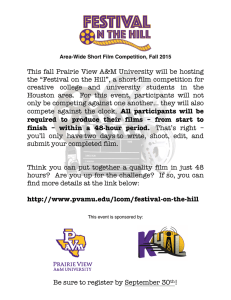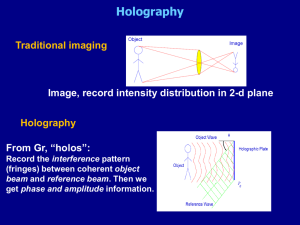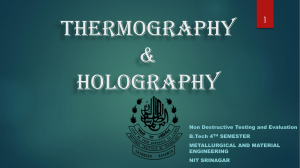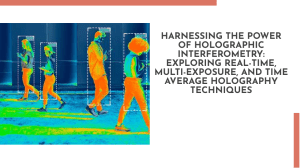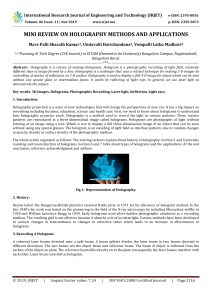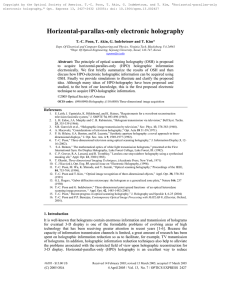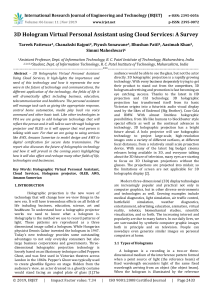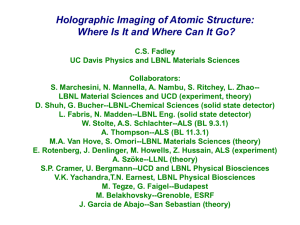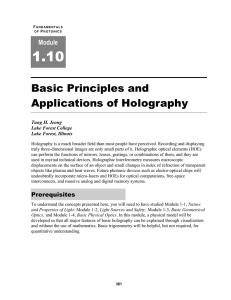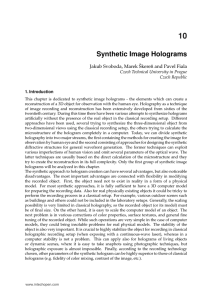Interferometry to test wavefronts Screen What is the
advertisement
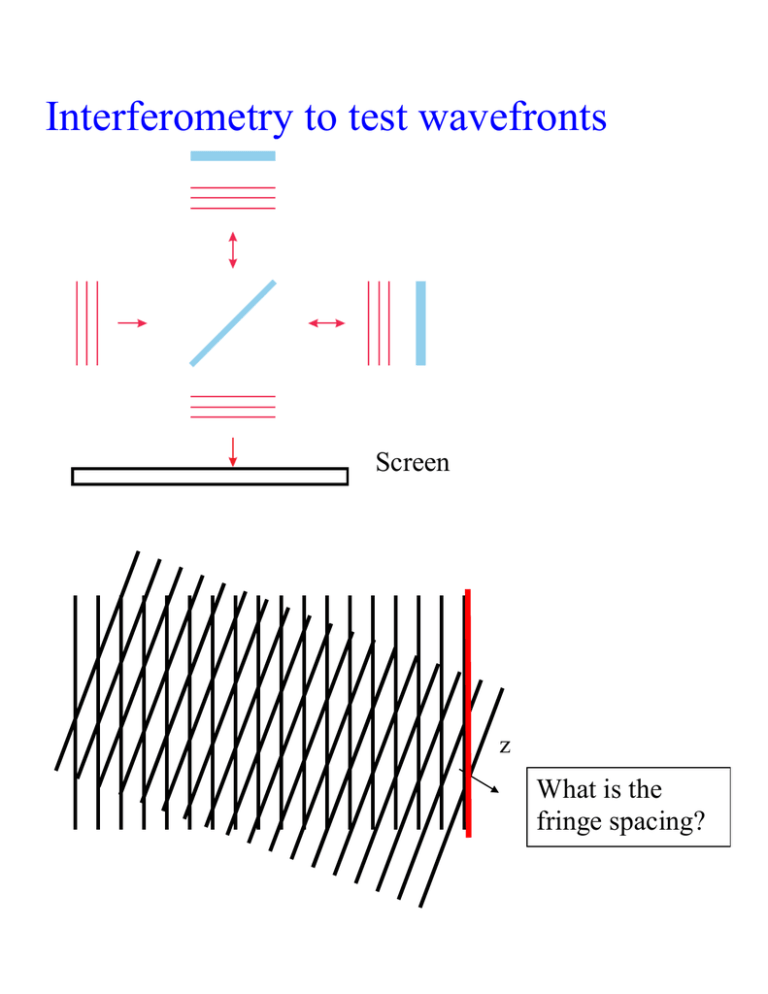
Interferometry to test wavefronts Screen z What is the fringe spacing? What do these patterns represent? A plane wave added to a spherical wave (same , ) zR Turbine blade Medical Interferometry A ballistic set-up for study of supersonic body motion through two-phase media with the powder guns of 24-35 mm in caliber. Optical system lens diameter is 400 mm) and two ruby lasers as light sources for two-frame high-speed recording of interferograms. Holography Traditional imaging Intensity distribution in 2-D plane is recorded on photographic emulsion, digital pixels, etc Holography Record the interference pattern (fringes) between coherent object beam and reference beam. Then we get phase information coded as intensity! Film requirements Normal film: Feature size: depends how large you want to make printed photo (My calc.: 35 mm film enlarged to 810 needs ~7 m features) Exposure ~ Ihitting it; later T ~ Ithat hit film (linear response) Holographic film: Feature size: needs to be smaller than wavelength of light → Stability!! Designed with T ~ I2that hit film, (nonlinear response) so that later Etransmitted = tEincident Ithat hit filmEincident From Hecht Why 3-D: Hecht, pg 632 To create hologram To view hologram Reflection holography Object and reference beam come from opposite sides of holographic plate. Reconstructing beam from same side as viewer reflection. Volume holograms White-light reconstruction: Only light at proper Bragg angle (2dsin = ) is reflected off to form a 3D virtual image. Multiple image storage: By successively altering the incident angle (or the wavelength), a volume hologram can store hundreds of co-existing holograms at the same time.

